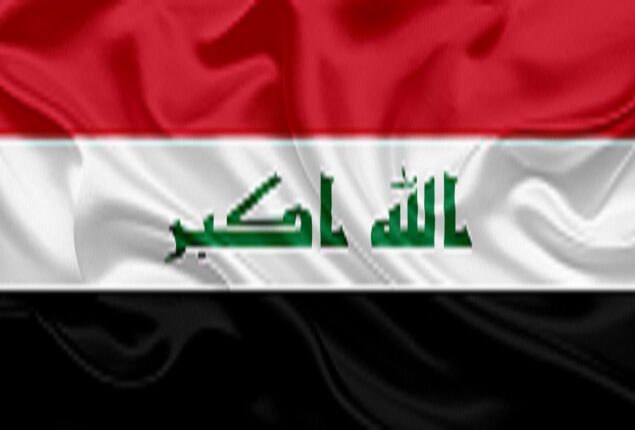Sadr’s supporters organise a sit-in at the Iraqi parliament
Thousands of Moqtada al-Sadr loyalists take over Iraqi parliament for second time...

Reasons behind the downfall of Iraq
Iraq is experiencing its worst and longest political crisis in decades. Iraqi political kingmaker Moqtada al-Sadr and a rival bloc of parties with strong ties to neighboring Iran are at the center of this escalating conflict.
In a show of force, supporters of Shiite cleric Sadr stormed Baghdad’s heavily fortified Green Zone, which houses government buildings and Western embassies, twice last week, and staged a long sit-in inside parliament on Sunday.
While Sadr’s supporters protest the nomination of a new prime minister, these demonstrations also reflect a deep political schism between Iraq’s rival Shiite blocs and the powerful hand that analysts say Iran is playing from afar.
“Iran will be a party in this conflict,” said Ihsan Al-Shammari, a Baghdad University politics professor and the director of the Iraqi Centre for Political Thought.
“And Sadr is aware that Iran could be what pushes the Coordination Framework to try to inflate its influence in the political scene in Iraq,” he added.
The Coordination Framework, a Shiite bloc aligned with Iran and opposed to Sadr, includes politicians with ties to Tehran, including former Prime Minister Nouri al-Maliki. It also includes Iran’s heavily armed paramilitary groups.
The latest upheaval comes after nine months of political deadlock, bickering, and accusations that hampered the formation of a government after Sadr emerged as the largest winner in the October parliamentary election.
Sadr’s victory put the Iran-aligned Shiite blocs that have dominated Iraqi politics for decades on the defensive.
In a ‘tectonic shift’ in Iraqi politics, Sadr asked his political bloc to resign from parliament in June after failing to cooperate with opposing blocs. Sadr’s true power was revealed in this move: his ability to mobilise supporters on the streets in large numbers and with great force.
The Coordination Framework called for protesters to take to the streets again on Monday, potentially escalating the situation.
“Iraq’s political system is on the brink of irreparable collapse and the country is headed toward a civil war between Sadr and his Iran-aligned rivals,” said Ranj Alaaldin, a nonresident fellow in the Foreign Policy programme at the Brookings Institution, a Washington, DC-based think tank.
Iranian foreign ministry spokesman Nasser Kanaani said at a weekly press conference on Monday that the situation in Iraq was caused by internal political disputes, according to the state news agency IRNA. Kanaani’s remarks appeared to dismiss speculation about Tehran’s involvement in Baghdad’s current crisis.
While some experts believe that the current political impasse is deeply rooted in Iran’s level of influence over its neighbour, others believe that Iran is not the driving force behind the conflict.
“I think the motives for this conflict are primarily internal and not the divisions about Iran,” said Mohammed Shummary, chairman of the Sumeria Foundation in Baghdad.
“There are transformations taking place within Iraqi politics and rising ambitions from different parties who wish to consolidate power,” Shummary said, adding that accusations of links with Iran have become a tool – primarily used by non-Iran-aligned blocs – to discredit their rivals.
While Sadr has long opposed both Iran and the United States, the popular cleric has not always taken a consistent stance toward Tehran.
Sadr was believed to have been hiding in Iran since 2007 as a fugitive from US forces seeking to arrest him in Iraq. He returned to Iraq in 2011 after reaching an agreement with the Iraqi government that was in power at the time.
When protesters first stormed parliament on Wednesday, they were protesting the Coordination Framework’s nomination of Mohammed Shiya al-Sudani for prime minister, a figure many see as an ally of Iran-aligned Maliki.
The real issues, however, go far beyond al-nomination, Sudani’s according to Al-Shammari, who adds that discontent is primarily focused on what is perceived as Iran-aligned Shiite blocs’ attempts to isolate and exclude Sadr from politics.
Sadr called on politicians to listen to protesters’ demands on Twitter, saying there is now a “golden opportunity to end corruption and injustice.”
Sadr has warned that if the protesters’ demands are not met, he will not be held responsible for the ensuing chaos.
“The current revolution is Sadrist,” he tweeted.” If you miss this opportunity, do not blame me.”
Despite efforts to defuse tensions, Alaaldin believes Sadr will be unable to retreat “unless he is given the government he initially wished.”
“This is the longest political deadlock [in Iraq] since 2003,” Al-Shammari said, adding that even if it is resolved, it is unlikely to be the country’s last crisis.
“The political system faces great paralysis,” he said, warning that “reaching a moment of collision would indicate that this rift has reached unprecedented levels.”
Catch all the World News, Breaking News Event and Latest News Updates on The BOL News
Download The BOL News App to get the Daily News Update & Follow us on Google News.